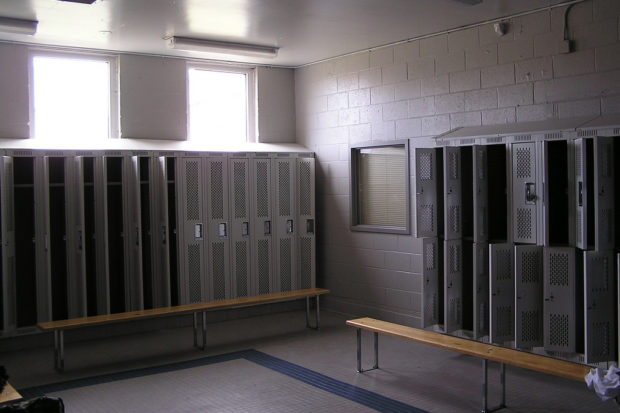
By: Ruth Gadebuch
“If a nation expects to be ignorant and free, it expects what never was and never will be.”-Thomas Jefferson.
“Popular government without education is a prologue to a farce or a tragedy.”-James Madison

It is with this reasoning that our forefathers created the public school system of these United States. It cannot be emphasized too much that this is the one agency this nation has for creating commonality among its diverse peoples. It is the civic mission, the justification of using tax money.
Private schools with religious affiliation and otherwise have long existed, but it is the public system that serves the majority of our citizens. Through the years, what, or how, that system should deliver has become contentious in the impossible task of being all things to all people. Particularly is this so when the system has been given the assignment of implementing social change. On the other hand, if educators can’t do it, who can?
In California, often a bellwether, school districts were the first public agency to implement collective bargaining, often in conflict with long established tenure. Nationwide court rulings to desegregate had an astounding effect on the cherished neighborhood schools. It is not my intent to argue the merits but to acknowledge that these contain the roots of the movement to jettison public schools with first vouchers and now charter schools.
With few exceptions, communities rejected the idea of giving individuals tax money to attend schools with no accountability for the outcome. Thus, the voucher movement was short lived. The intent of charter schools was to create innovative programs that could then be replicated in the system. Approximately 2.5% of the nation’s children now attend charters. After a few years, results are indicating that, in general, the students perform at much the same level as those who remain in the system. As in the public schools, there are those of exceptional accomplishment.
Local interest in charters has been piqued by the Fresno Unified School District’s (FUSD) plans for the Dailey International Studies Program to be operated as a charter by the district. Commonly, districts issue charters to an independent group; however, there is precedent in Fresno County for such an arrangement. The CART school opened as a charter. The Kingsburg Elementary District operates entirely as a charter. The Sanger Unified School District’s recent Academic Decathlon champion is a charter school. The staff at these schools are a mix of union and nonunion teachers.
Albeit with the major provision of relief from the usual rules, Dailey’s program will be akin to the magnet schools that the FUSD has long used as a tool for desegregation. In hopes of enticing, instead of forcing, parents to leave the neighborhood school, the FUSD established magnet schools. They offered an opportunity for students to develop a particular interest and talent.
Although the FUSD is hardly integrated, despite the program begun in the late 1970s, significant mixing has occurred and continues to be the major hope for bringing varying ethnic and economic groups together. Obviously, families that make this choice are willing to go the extra mile involved in having their child leave the neighborhood school. In common with charter schools, these are usually parents willing and able to participate. Teachers also make accommodations for magnet and charter schools.
Probably the best-known magnets in the FUSD are the Roosevelt Performing Arts and the Edison math science complex, as well as Bullard Talent for younger students. Testimony to their popularity is found in the continued development of magnets, most notably Bullard High’s focus on the legal system and the International Baccalaureate program at Fresno High. It is this latter program that is the basis for the planned charter at Dailey as a feeder school.
My concern with magnets is that students may be directed into one area of interest before they have had an opportunity to explore the many possibilities. Or, it might be more the parent’s interest than the child’s. Although I am totally opposed to charter schools, I am pleased to see the international focus, a necessity in today’s world, and a preschool inclusion in the Dailey plans because I am convinced that the shortcomings of public school originate in the lack of foundation.
Insufficient attention is given to ensuring that all get a firm foundation: No moving to the next level should be done until the basics have been mastered. Ostensibly, children are moved along in order to “save face.” Believe me, the child knows when s/he is in over her/his head so self-esteem is hardly enhanced with our good intentions. I believe the dropout problem is largely due to students realizing that they cannot cope with the material. This is not just education’s problem. It belongs to the entire society. The challenge is to overcome the differences with which children arrive at the school. That can be done only with emphasis on the early years.
Teachers in the public systems complain bitterly that they are being forced to use prescribed programs, allowing little time for creativity. They blame the testing mania by which their performance is measured. Without doubt, testing as a measurement is inadequate, however, it continues to be a strong part of the Obama administration’s program. A school failing to measure up according to the test is totally reorganized. One can’t help but wonder if the teachers who “failed to measure up” could have done the job had they received the same leeway that the new group is allowed.
Larry Powell, the Fresno County Superintendent of Schools, notes that through the years the freedom originally granted charter schools has been curtailed, whereas that for public schools has been relaxed, giving hope of meeting in the middle at some future time. All charter schools are subject to the same fiscal accounting rules as the public schools under the umbrella of the County Office of Education.
An inquiry with the Fresno Chamber of Commerce produced the response that it has no position on charter schools. A request for an appointment with the superintendent of the FUSD had not been granted by press time.
“Competition will make public schools improve” is often given as a reason for charter schools. One FUSD school board member explained that meeting the competition was a component of the Dailey plan. This is a gross oversimplification. All schools are not and can never be on the same footing. Each is so different because the students are different and therefore need different approaches. It is not a race to reach the top first. It is a necessity to serve all children for the best interests of the community.
Call it prejudice if you like, but my loyalty continues to be with the public schools. I think society can ill afford individual schools with all manner of programs and little commonality. I fear that a school district operating a charter school will have its attention diverted from the whole. There will be great pressure to assure the success of this school when the system has its hands full serving its many students in the established schools. As noted previously, the opening paragraphs of the Dailey plan state what we want/need for all our students. I am convinced that society’s best interests lie in fixing the public schools. All our resources need to be put to the good of the whole.
